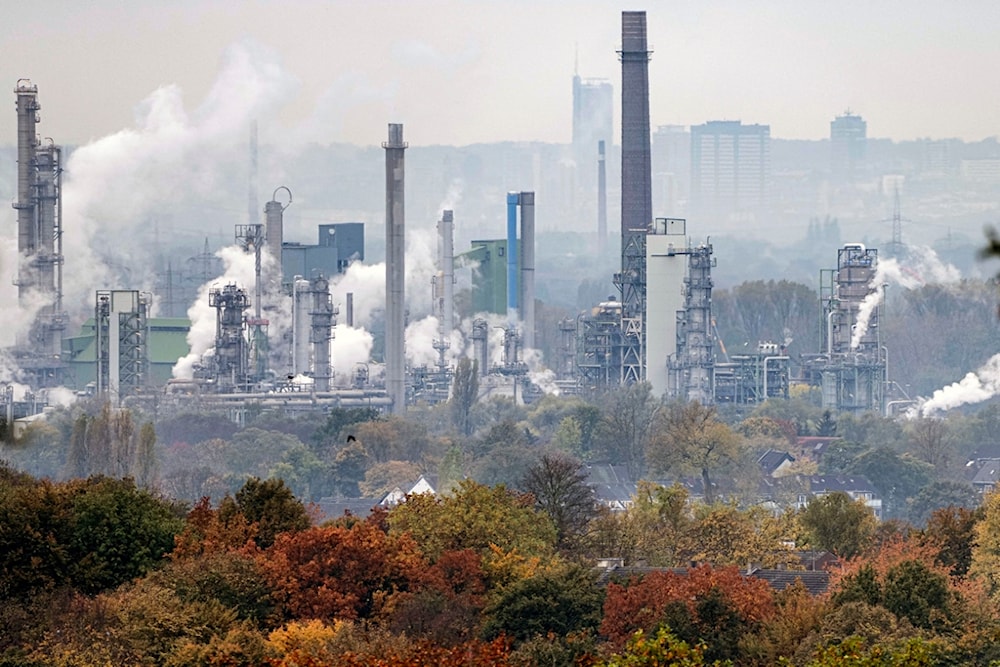Germany's faces longest post-war recession, report finds
The Federal Statistical Office is expected to confirm the contraction for 2024 when it releases official data on January 15.
-

A BP refinery steams in Gelsenkirchen, Germany, while Europe's biggest economy is still shrinking for a second consecutive year and German industrial workers fear for their jobs, on Thursday, October 24, 2024. (AP)
The German economy is heading toward its most prolonged recession since World War II, with three consecutive years of contraction anticipated by 2025, according to a report by the Handelsblatt Research Institute (HRI).
The institute projects a 0.1% economic decline in 2025, following contractions of 0.3% in 2023 and 0.2% in 2024. This surpasses the two-year downturn experienced in the early 2000s and reflects the compounded impact of an energy crisis, persistent inflation, and the aftermath of the COVID-19 pandemic.
"The German economy is in the midst of its greatest crisis in post-war history," stated HRI chief economist Bert Rurup. Demographic factors, particularly an aging population, are exacerbating the situation. The HRI estimates that Germany's annual growth potential has dropped to just 0.5%. "The economy is at the beginning of a strong aging spurt," Rurup added.
The Federal Statistical Office is expected to confirm the contraction for 2024 when it releases official data on January 15. While HRI predicts a slight economic recovery in 2026, growth is expected to reach only 0.9%, significantly below pre-crisis levels. The German central bank also revised its growth forecast for 2025 in December, lowering it from 1.1% to 0.2%.
Energy Crisis
One of the key drivers of Germany's economic troubles is the loss of access to affordable Russian gas. The country's reliance on liquefied natural gas (LNG) from the US has driven energy costs higher, severely affecting manufacturers and small businesses. Rising costs have led to shutdowns and bankruptcies across several industries, including major players such as Volkswagen.
Read more: India surpasses China as Russia's top oil importer, data reveals
Before the escalation of the Ukraine conflict, Germany depended on Russian gas for over half of its energy needs. EU sanctions against Russia led to drastic reductions in gas deliveries, culminating in the destruction of the Nord Stream pipelines in September 2022. Most recently, Russia officially suspended gas transit to the EU through Ukraine on January 1, 2025 following Ukraine's refusal to renew the transit agreement.
Economic Struggles
Germany's export sector, particularly high-value manufacturing, remains a relative strength, but even it faces challenges from global instability and soaring energy prices. Former Chancellor Angela Merkel has criticized the decision to cut ties with Russian gas, calling the past arrangement a "win-win situation" in a December interview with France 2 TV. "Now prices have exploded," she remarked.
Economic concerns have become a central issue for Germans. A December poll by ARD identified the economy as the top voter priority. These concerns contributed to the collapse of Chancellor Olaf Scholz's coalition in November, triggering an early general election scheduled for February 23.

 3 Min Read
3 Min Read








